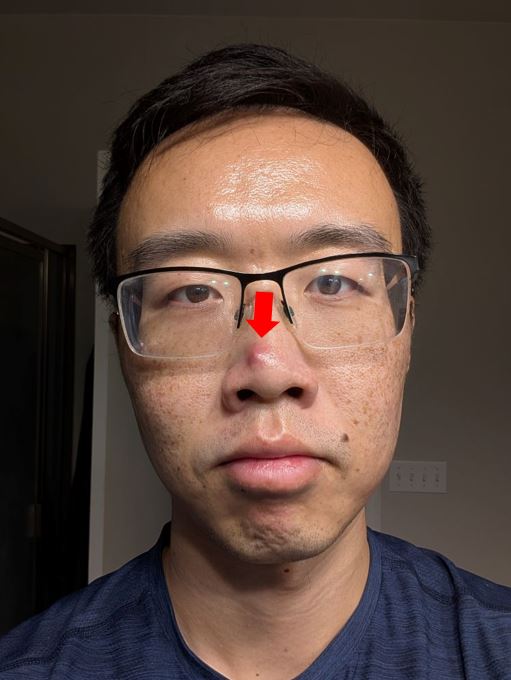I recently came across a very insightful video from Theo Vonn’s podcast where Theo Vonn and Tony Robbins talked about 6 criteria that you can use for building new habits and replacing old habits. I thought the criteria were not just practical but also very introspective. I’ve been incorporating these criteria into my journaling sessions when evaluating the habits I currently have.
Here’s the video:
The focus is on the ‘why’, not the ‘how’
Before I jump into the criteria, I want to note that the criteria are more focused on the why over the how for creating new habits. It’s important to know how to do both. If you want to focus on the ‘how’, there are really good books like Atomic Habits or The Power of Habit that show how to start a new habit.
Knowing the why behind building new habits gives more meaning and significance to the habits, which makes it easier for you to form the habit.
The 6 criteria
Here were the 6 criteria they mentioned that you can use when building new habits. Each criteria is targeted to satisfy a basic human need. I also add a little bit of my own thoughts on each criteria as well.
Certain (feel good)
Does the habit make you feel certain?
The way Tony phrases this is a bit weird because feeling ‘certain’ is kinda generic. Does certain mean like it makes you feel more confident or is it that it makes you feel what you want to feel after doing the habit?
I believe that it’s more of the ladder – the habit must make you feel the way you want to feel after doing it. In most cases, I’d like to think that people want to feel good after doing a habit. So that’s why I include in parenthesis “feel good”. Tony also starts to use the phrase ‘feeling good’ to describe this first criteria as well.
We all want to do something that would make us feel good. If it doesn’t make you feel good, you probably wouldn’t do it.
Variety
Does the habit you do provide variety to your life?
This is another interesting way of describing this criteria. Tony says that the habit must change the state or the way you feel.
Here’s an example: You were feeling sad and wanted to say…go out for a run or eat some good food. You are hoping that the run or good food will make you feel more refreshed or happier. If the run or good food doesn’t change your emotional state (i.e. from sadness to something else), then the habit isn’t really all that helpful. That’s what Tony is eluding too when he says variety.
I had a slightly different but very similar interpretation of this criteria – it’s having a habit that provides you a variety of emotions. Being able to feel more emotions from a habit can make the habit more purposeful.
Here’s an example – I enjoy rock climbing because it relieves my stress and makes me feel more joyful and focused. The variety of emotions that rock climbing gives me allows me to go whenever I feel stressed or sad or distracted. It’s not limited to only when I feel sad.
Sense of significance
Does the habit provide significance to your life? In other words, do you feel like you are valued and/or loved when you do this habit?
Feeling significant in life is a need that I believe everybody needs to have fulfilled.
Doing something that’s significant to yourself shows you that who you are and what you do matters. You are walking toward your vision of who you want to be, and in that process, you gain higher self-esteem.
Connection to others, or something higher
Does the habit help you form a connection to others or even something higher like God?
This is really important because feeling connected to others or even something higher makes you feel less lonely.
Humans are social creatures so having a need for human connection is hard wired into our DNA. Being able to connect with others or something higher like God can make us feel more wanted and less alone. There has been research to show that there are psychological, physical, and mental benefits from being able to socialize and connect with others.
Being able to connect with yourself more is key to personal growth, which is the next criteria.
Personal growth
Do you feel like you are personally growing by doing this habit?
Tony Robbins famously said: if you aren’t growing, you’re dying.
I truly believe that all of us have a desire to grow not only out of a need for survival but also to become a better version of ourselves. How that growth looks differs from person to person.
For example, my habit of working out in the morning has contributed significantly to my personal growth physically and mentally. I’m able to hit some of my personal goals of hitting a certain weight and hitting a higher vertical for volleyball. At the same time, working out has reduced my anxiety and increased my focus during the day.
Contributing to others
Does this habit allow you to give to others?
Being able to serve or contribute to others gives you one of the best feelings you can have. You’re are improving somebody else’s life in someway.
Contributing to others also establishes connection with others, which is important makes you feel good and gives you a sense of significance.
So how many criteria do I need to fill?
Tony doesn’t specify how many criteria you need to fill to decide whether or not the habit is important enough to develop. It could be just one criteria or it could be all 6.
I’d like to think that the more criteria you fill for a habit, the easier it is to convince yourself that the habit is important to develop. The same goes for replacing a habit – the less criteria it fills, the more reasons you may find to replace it.
I hope this video and little discussion on building new habits was helpful! Do you think there are any other criteria one should consider? What’s your approach when evaluating the why for building new habits? I’d like to hear them in the comments below 🙂










